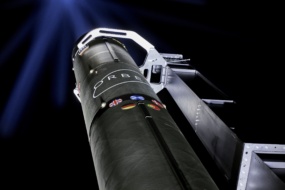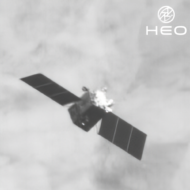The UK has ordered its second military reconnaissance satellite, awarding a £40M ($51.8M) contract to small sat manufacturer Surrey Satellite Technology Ltd (SSTL).
The new satellite, called Juno, will be fitted with advanced optical image sensors enabling the UK government to obtain intelligence on its adversaries—but also to monitor the environment and swiftly respond to natural disasters, SSTL said in a statement.
Seeing double: Juno will be the UK’s second defense reconnaissance satellite after Tyche, which launched in August on SpaceX’s Transporter-11 mission.
The two spacecraft will form the backbone of ISTARI, an intelligence, surveillance, and reconnaissance constellation of an unknown size that will be operated by the UK MInistry of Defense. It’s expected to be completed by 2031.
The constellation will include a cluster of three spacecraft fitted with synthetic aperture radar (SAR) instruments that can see through clouds and in the dark. The company that will make the SAR cluster, nicknamed Oberon, has not yet been announced, although the sats are expected to launch in 2026.
The £968M ($1.25B) ISTARI program will expand the UK’s national security space fleet, joining the seven spacecraft that make up Skynet, their secure telecoms system.
“With these Earth observation satellites on orbit, UK Space Command and defense will be better equipped to conduct all-domain military operations and deliver assured space-based intelligence, surveillance, and reconnaissance to the joint force and our allies,” Air Chief Marshal Sir Rich Knighton said in the statement.
What’s next: Juno is expected to launch in 2027. SSTL, which also built the Tyche spacecraft, will manufacture the satellite with the help of 200 engineers at its facilities in Guildford, near London.





